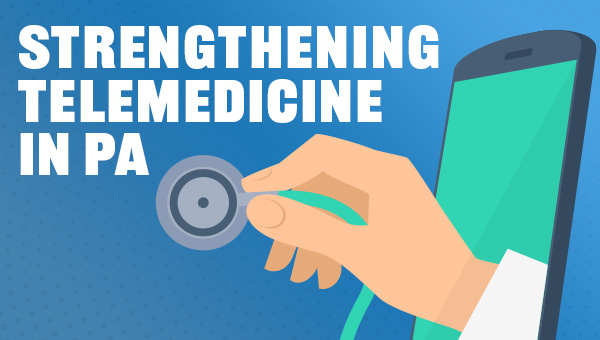
|
||
|
Dear Friends, This National Police Week, let us honor the heroes who keep our schools and communities safe every day. As a parent, I know the peace of mind strong police response brings. That’s why I’m proposing legislation for silent panic alarms in all schools, giving officers the tools they need to act swiftly in emergencies. It’s one more way to ensure our children’s safety. If you see a police officer this week, take a moment to thank them for their service. Sincerely,
In this Update:
Senators Tracy Pennycuick & Art Haywood introduce Alyssa’s Law
Senator Art Haywood (D-4) and I recently introduced, Alyssa’s Law, legislation addressing the issue of law enforcement response time when a life-threatening emergency occurs at a school. The bill requires that all public schools be equipped with silent panic alarms that directly notify law enforcement in the event of a school-based emergency. This law is of utmost importance because it enables school authorities to take proactive measures that can potentially save lives during emergencies. Alyssa’s Law is named in honor of Alyssa Alhadeff, one of the victims of the 2018 Marjory Stoneman Douglas school shooting in Parkland, FL. Due to tireless advocacy by Alyssa’s family and their organization, Make Our Schools Safe, Alyssa’s Law has been signed into law in five other states and is in progress in several others. When a dangerous incident occurs on school grounds, the most rapid response possible can save lives. We owe it to our children and teachers to use every method available to give them the best chance to get through these emergencies unharmed. Read the full release here. Keeping You Connected: Comcast Steps Up After ACP Ends
Last month, the U.S. Congress and Administration failed to come to an agreement to extend additional funding for the federal government’s Affordable Connectivity Program (ACP). The program provided funding for low-income households to gain internet access. In 2023, Pennsylvania households received $241 million in ACP funds, an average monthly benefit of $33 per household. I wanted to let you know that every household that has been enrolled in the ACP is eligible for Internet Essentials, which provides internet access at a reduced cost. I encourage you to check with your provider if you participated in the ACP to determine how you can continue to receive assistance. Pennsylvania Broadband Development Authority Receives Latest Federal Approval to Implement $1.16 Billion in Broadband, Equity, Access, and Deployment (BEAD) Funding to Connect Every Pennsylvanian to the Internet
The Pennsylvania Broadband Development Authority (PBDA) Executive Director Brandon Carson announced that the federal Department of Commerce’s National Telecommunications and Information Administration (NTIA) has approved the Commonwealth’s Broadband Equity, Access, and Deployment (BEAD) Initial Proposal – Volume II. BEAD is a federal grant program authorized by President Joe Biden’s Bipartisan Infrastructure Law which provides each state funding to deploy broadband infrastructure to ensure that everyone has access to reliable, affordable, high-speed Internet service. In June 2023, Governor Josh Shapiro and PBDA Executive Director Brandon Carson announced that the Commonwealth will receive more than $1.16 billion in federal BEAD Program funding to expand broadband in unserved and underserved areas to make sure every Pennsylvanian has access to affordable, high-speed internet. The BEAD Program requires states to submit five-year action plans to the National Telecommunications and Information Administration (NTIA) for approval – and the PBDA completed and submitted its five-year action plan to the NTIA in August 2023, which established Pennsylvania’s broadband goals and provided a comprehensive needs assessment for the Commonwealth. The NTIA approved the PBDA’s plan in October 2023. The NTIA also requires states to complete an Initial Proposal: Volume I & Volume II. The PBDA’s Initial Proposal – Volume I, which outlines existing broadband funding, unserved/underserved locations, Community Anchor Institutions, as well as the challenge process for BEAD funding, was approved in February 2024. Today, the NTIA approved the PBDA’s Initial Proposal – Volume II which outlines Pennsylvania’s broadband service implementation efforts including local coordination, the subgrantee selection process, implementation activities, labor standards and workforce readiness, low-cost service options and middle-class affordability. Today’s approval of Volume II moves the PBDA another step closer to accessing Pennsylvania’s BEAD funds and work toward implementation of its BEAD program to provide “internet for all” in Pennsylvania. “Since Pennsylvania was awarded $1.16 billion in BEAD funding last summer, the PBDA has been working to provide the resources Pennsylvanians need to make ‘internet for all’ a reality across the Commonwealth and close the digital divide in Pennsylvania – and today’s NTIA approval of our Volume II is an important milestone in that effort,” said Executive Director Brandon Carson. “Now PBDA can take the next steps toward identifying the subgrantees who will construct the infrastructure necessary to connect the 276,000 households, businesses, schools, and libraries across Pennsylvania who do not have access to broadband at all.” More than 276,000 households, businesses, schools, and libraries don’t have access to broadband across Pennsylvania. The Shapiro Administration is working to change that so every Pennsylvanian has access to reliable, affordable, high-speed internet, which will lead to better health outcomes, better education outcomes, and better economic outcomes. “Today, Pennsylvania can move its Internet for All efforts from planning to action,” said Assistant Secretary of Commerce for Communications and Information and NTIA Administrator Alan Davidson. “I congratulate the Pennsylvania State Broadband office for developing a strong proposal for how they will connect all of the state’s residents to high-speed Internet service.” With Initial Proposal – Volume II approval, the PBDA now has one year to submit a Final Proposal to the NTIA that details the outcome of the subgrantee selection process and how the state will ensure service to all unserved and underserved locations. Once that final plan is approved by the NTIA, the PBDA will start a four-year implementation process to connect communities across the Commonwealth. In addition to $1.16 billion in BEAD funding, the PBDA recently approved $204.1 million in federal Broadband Infrastructure Program (BIP) grant awards to 53 projects impacting 42 counties across Pennsylvania. The grants, made to businesses and non-profits, will be matched by more than $200 million in private investment. The Commonwealth has also received: $45 million through the Multi-Purpose Community Facilities Program for community projects to construct, acquire, or improve facilities that are open to the public and will directly enable work, education, and health monitoring and $20 million to provide technology devices such as laptops for distribution to schools, libraries, municipalities, workforce training organizations, and other non-profits who can make them available to individuals that lack the technology needed to access the internet. Visit the Pennsylvania Broadband Development Authority’s website to learn more about its work to close the digital divide in the Commonwealth. Senate Republicans Secure Historic Tax Cuts for Working Families
Working families, job creators and energy consumers in Pennsylvania would see their taxes reduced by approximately $3 billion a year under a bill approved by the Senate with a strong bipartisan, veto-proof majority. It would represent the largest tax cut for working families in Pennsylvania history, saving taxpayers more than $13 billion over the next five years. Senate Bill 269 would reduce the personal income tax (PIT) rate from 3.07% to 2.8%, putting more money in the wallets of every Pennsylvanian who earns a paycheck. The bill would also eliminate the gross receipts tax on energy, effective Jan. 1, 2025, providing critical relief from high energy costs. The tax cuts would benefit all Pennsylvania families and inject an additional $3 billion into the state’s economy, rather than growing government and arbitrarily picking winners and losers. The plan is a sharp contrast from Gov. Josh Shapiro’s calls for $3.2 billion in new government spending, as well as legislation introduced by House Democrats to nearly quadruple certain taxes paid by small businesses. Instead, Senate Republicans continue to protect taxpayers against unnecessary tax increases, new spending and unchecked growth in the size of government. Senate Votes to Create Statewide Sexual Assault Evidence Tracking System
To assist survivors of sexual assault, the Senate approved Senate Bill 920, which would establish a sexual assault evidence tracking system. Using the system, individuals could follow the path of a rape kit throughout the collection and testing process. Sexual assault forensic exams are conducted using what are commonly referred to as rape kits, in which DNA evidence is collected from the assault victim’s body, clothes and other personal belongings. The process can increase the likelihood of criminal prosecution. Thirty-two states and the District of Columbia have established rape kit tracking systems. Enactment of the legislation would enable Pennsylvania to receive additional federal funds. Legislation to Curb Distracted Driving Set for Enactment
Legislation passed by the Senate to prohibit the handheld use of cellular and other devices while driving is set for enactment into law. Senate Bill 37 would enhance driver responsibility by prohibiting the use of handheld cellphones or other communication devices while operating a motor vehicle on a Pennsylvania highway or trafficway. While hands-free use of devices when driving would remain legal, handheld use of devices would only be permitted when the vehicle is parked on the side or shoulder of a roadway and the vehicle can safely remain stationary. To inform drivers about the new law, law enforcement must issue warnings for violations during the initial 12 months following the bill’s enactment. Senate Acts to Bolster Telemedicine in PA
The Senate approved legislation aimed at expanding the use of telemedicine in Pennsylvania. Telemedicine is the remote delivery of health care services and medical information using telecommunications technology. It allows medical services to be provided to some of the most vulnerable Pennsylvanians who otherwise would not be able to receive them due to location or other circumstances. During the COVID-19 pandemic, it saw rapid growth in Pennsylvania. Senate Bill 739 requires insurance providers or managed care organizations to reimburse health care providers for services provided to a patient through telemedicine. Services provided through telemedicine must meet the same standard of care as health care services provided in person. Scholarship Bill Wins Bipartisan Support
The Senate Education Committee advanced bipartisan legislation to provide more educational options to children in low-performing public schools through scholarships to attend the school of their choice. Senate Bill 795 would establish the Pennsylvania Award for Student Success (PASS) Program. During Gov. Josh Shapiro’s budget address earlier this year, he referenced his continued support for “scholarships that let poor families in struggling school districts put their kids in the best position for them to succeed – whether that’s paying for extra tutoring, books and computers, or yes, going to another school.” The bill, which now heads to the full Senate for consideration, is part of a larger Senate Republican initiative to preserve the role parents have in their children’s lives.
If you are not already subscribed to this newsletter please sign up here. |
||
|
||





Want to change how you receive these emails? 2025 © Senate of Pennsylvania | https://senatorpennycuick.com | Privacy Policy |








